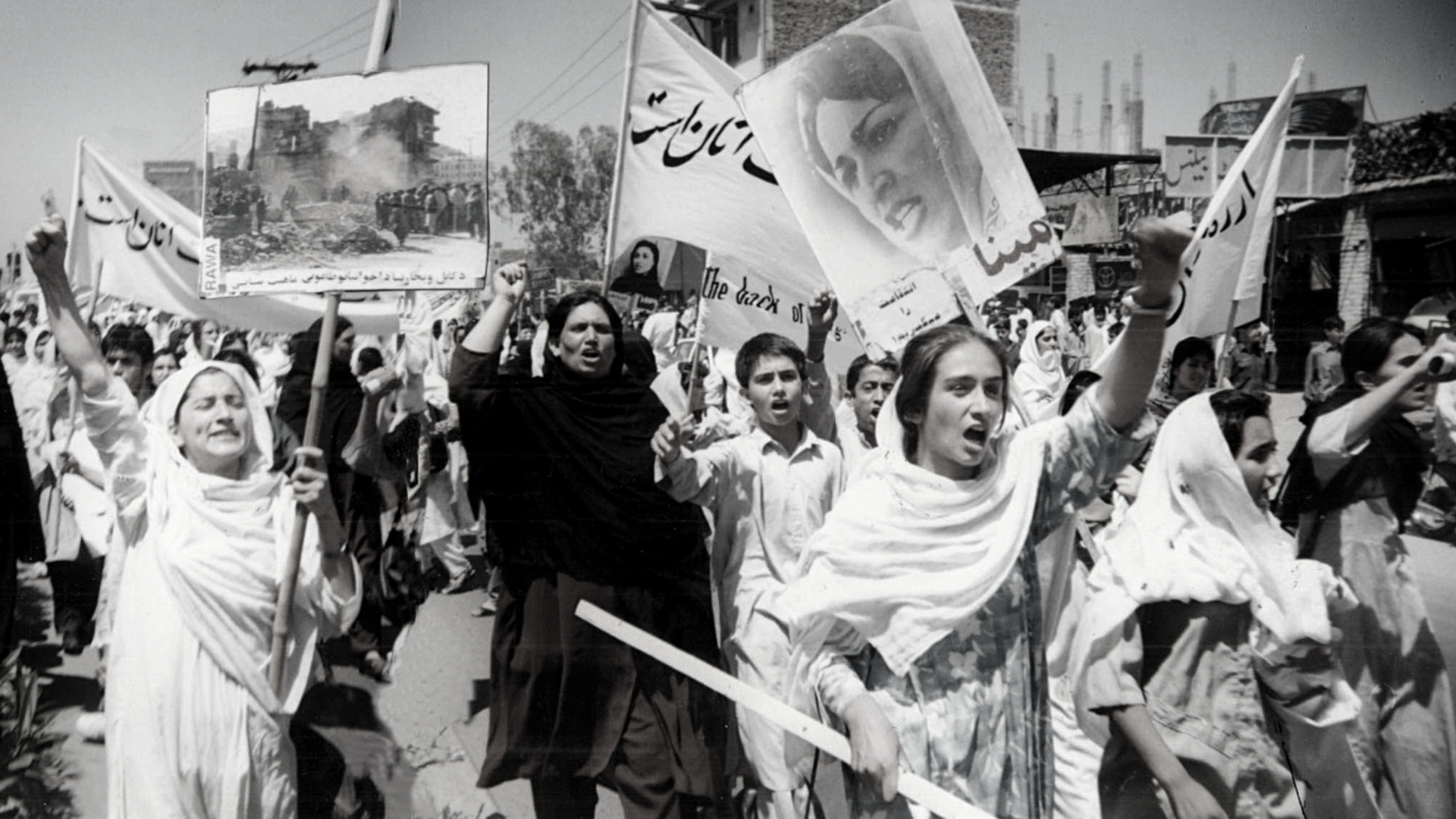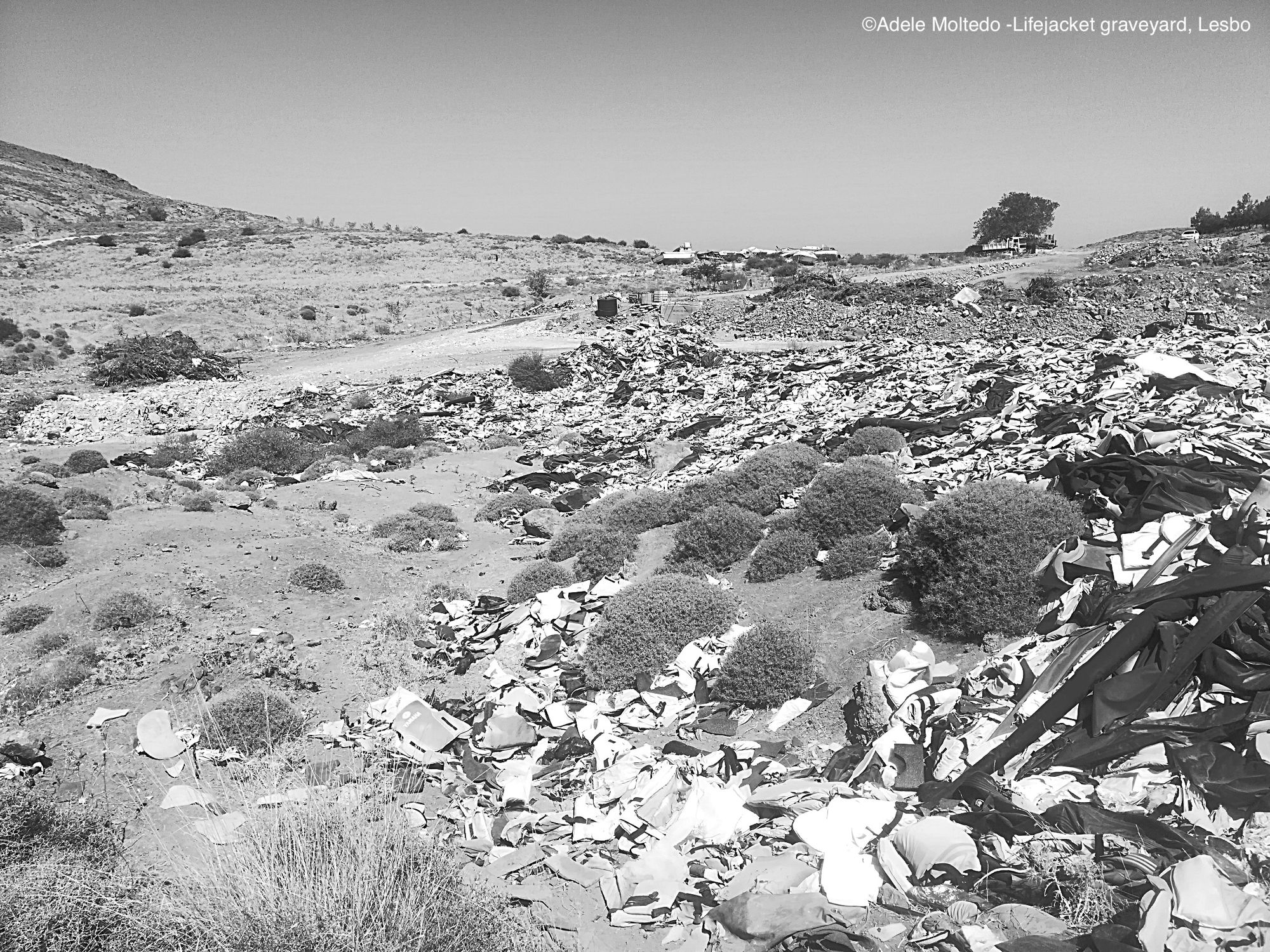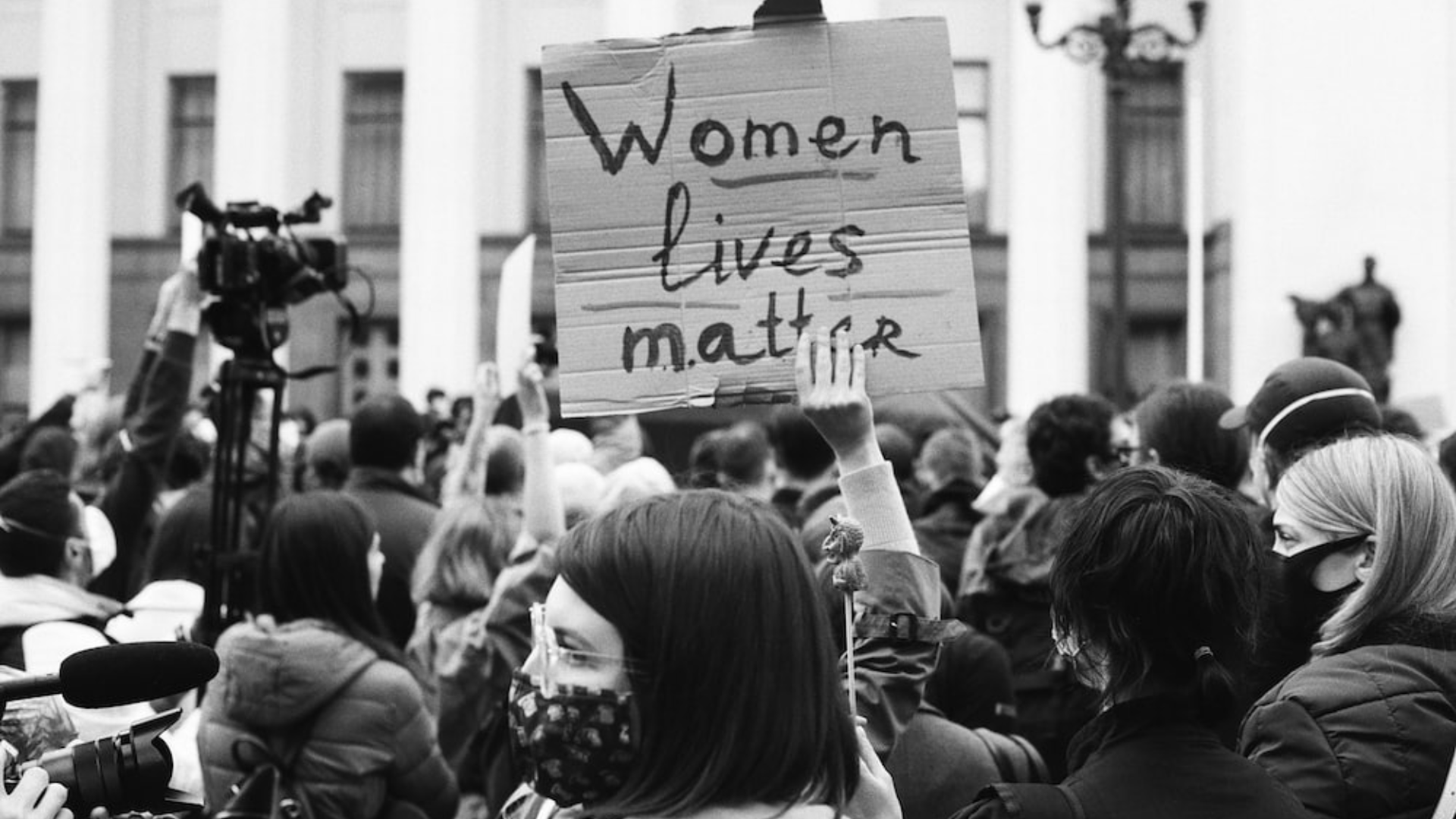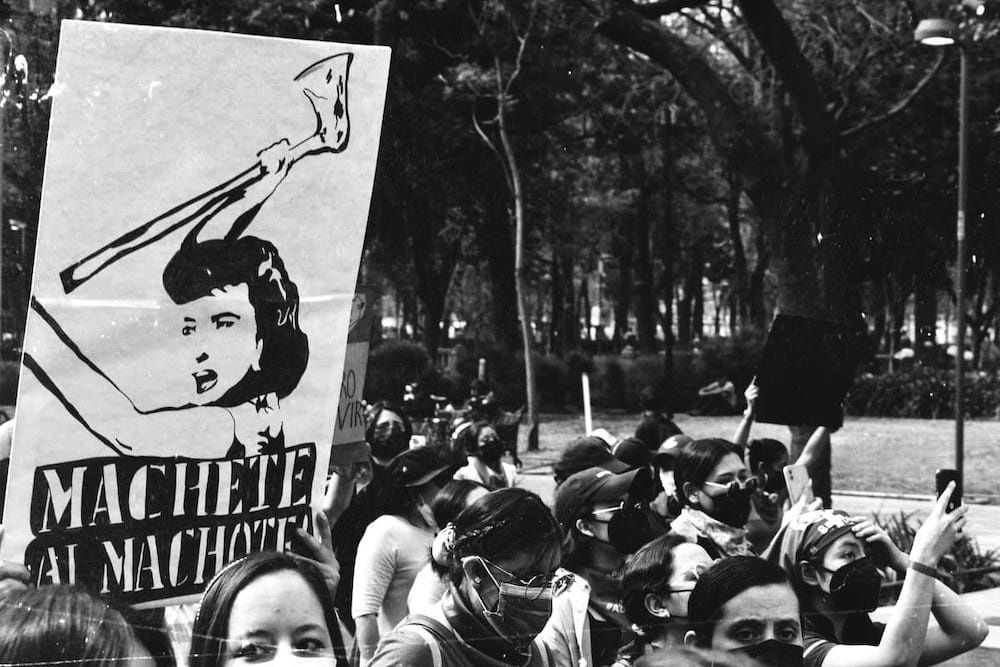On the occasion of International Women’s Day 2023, we decided to ask several outstanding women and men who work from different perspectives on women and girls’ rights around the world to share some thoughts on what they believe are the most important battles to be fought at the moment, in their respective areas. We asked human rights activists, scholars and practitioners to share their thoughts and draw some important recommendations for the future. We are very much indebted to them for their contributions to our discussion as well as for their daily struggles to advance women’s rights worldwide.

8 March 2023. What are the main challenges ahead for Ukrainian women and girls?
Kateryna Pishchikova, Associate Professor of Political Science and International Relations, eCampus University, Associate Research Fellow, ISPI
"Ukraine has been at war with Russia since 2014, and women have played an important role throughout. Ukrainian civil society, largely driven by women, was crucial in Ukraine’s war effort in Donbas and in managing the fallout. Indeed, opinion polls have been consistent in registering an increase in positive attitudes and levels of trust in civic initiatives. Women also started volunteering to join the army, eventually obtaining the legal recognition of equal fighting status in 2018. At the moment of writing, there are about 60 000 women in the Ukrainian army, which is more than 20% of total troops, 5 000 of which are in combat units. At the intersection of these two developments, women veterans’ organizations work on legal hurdles and practical challenges faced by women combatants as well as on their societal acceptance.
What has changed since 24 February 2022 is the scale and nature of the warfare whereby Russia has been targeting the civilian population as part of its military strategy. Ukrainian women have experienced unspeakable violence, displacement, and trauma. They assumed additional roles as caretakers and breadwinners. Around 200 000 babies were born in Ukraine in 2022, many of which in inhumane conditions. Healthcare is under strain, while the need to address mental and physical damage is on the rise. Approximately 90% of Ukrainian refugees are women and children, at risk of exploitation and human trafficking; they suffer the trauma of separation from male members of their families. The compounded vulnerabilities faced by women will persist long into the future. The biggest challenge looking ahead is securing a gender-sensitive and gender-inclusive peace that delivers justice and recognises the disproportionate burden that this war has placed on Ukrainian women."

8 March 2023. What are the main challenges to women and girls' rights in Afghanistan?
Fereshta Abbasi, Researcher in the Asia division at Human Rights Watch
"There is no country in the world where the basic human rights of women and girls are more restricted than in Afghanistan, and no government anywhere that has expressed support for the Taliban’s policies there.
In 2023, Afghanistan remains the only country where teenage girls and women do not have access to education, employment, and freedom of movement. Despite the severe economic costs of maintaining these restrictions—not only for women and girls but for the entire population—the Taliban have been persistent in maintaining these bans.
The Taliban’s restrictions on women's rights are compounding the humanitarian disaster in Afghanistan that was prompted by the sharp cut-off of most foreign aid after the Taliban takeover in August 2021. Taliban regulations prevent women from working for humanitarian organizations, thus making it more difficult for women and children to get aid and secure livelihoods.
These new rules have led humanitarian organizations to suspend much of their work, because continuing to do so would mean those most at risk would not benefit, contrary to fundamental humanitarian principles of impartiality, humanity and independence. Responsibility for ensuring the well-being of the population lies with the Taliban."

8 March 2023. What are the main challenges to women and girls' rights in Niger?
Ornella Moderan, Sahel and West Africa Researcher, Gender Equality and Social Justice Advocate
"In Niger, the situation of women’s and girls’ rights remains severely hampered by the persistence of record levels of child marriage, which disproportionately affect girls. According to UNICEF, the country was home to some 5 million child brides in 2020. It also has the highest prevalence of child marriage in the world, with 76% of young girls and women married before the age of 18 – a trend strongly correlated with high proportions of forced marriage and domestic abuse.
Not only does child marriage violate the rights of young girls by exposing them to sexual violence, physical harm – including the maternal over-mortality associated with early childbearing – and emotional distress; but it also compromises their future by increasing the chances of their deschooling, setting them up for life-long economic dependency, and embedding them in couple dynamics that are marked by great power imbalances and conducive to the normalization of domestic violence.
The country’s civil code sets the minimum age for a girl’s marriage at 15 (and 18 for boys). Still, this requirement is neither accompanied by any civil law penalty nor is it reflected in criminal law, which makes it toothless. In practice, law enforcement and justice actors lack the leverage to sanction families who continue to wed off girls as young as 8 or 9 years old. It is urgent to address this pitfall, as child marriage is an impediment to girls’ rights today as well as to their rights as women tomorrow."

8 March 2023. In your opinion, what are the main challenges for women and girls' rights in the context of the migration crisis?
Andrea Accardi, INTERSOS - COVAX Task Force Coordinator
"The role of women is essential and non-negotiable in humanitarian action and is crucial within the societies and contexts where humanitarian organisations operate. In Afghanistan after a temporary closure to women activities, following the announcement by the Taliban authorities to ban the work of women in NGOs, the health activities of INTERSOS resumed, based on the clarification provided by the Ministry of Public Health. The contribution of our female colleagues is essential to ensure access to humanitarian assistance services for millions of women and girls who would otherwise be excluded.Without women’s work and support it would have been impossible to raise awareness and engage local communities in the vaccination campaign against Covid-19 in Yemen and Nigeria. The role of women has been pivotal in assessing barriers to vaccination and allowing humanitarian organizations involved in the campaign to increase their coverage. Through their daily role it has been possible to facilitate access to vaccination for an ever-increasing number of people."

8 March 2023. What are the main challenges to women and girls' rights in Turkey, especially in the aftermath of the earthquake?
Hande Dönmez Gulenoglu, PhD candidate in Political Science and Sociology at Scuola Normale Superiore
"In the last decade, Turkey has not been a safe country for women, queer people, or children. However, the devastating earthquake and inadequate first response of the Turkish government have profoundly affected everyone’s safety. While women, women+, and children are all more likely to die in natural disasters, the post-disaster responses remain gender insensitive.
After the horrible earthquakes, which killed tens of thousands of people, health concerns due to hygiene problems exist. Even in normal times, bathrooms can be the only available safe spaces, both bodily and emotionally, for many. Hence the safety and the politics of public toilets are an ongoing struggle field. In the aftermath of the quake, not having access to safe bathrooms and period products made everything more challenging for pregnant and breastfeeding women, persons who menstruate and non-binary people.Women, queer people, and children have dealt with the additional burden of losing safe spaces from violence and discrimination. Extraordinary situations, such as natural disasters, shrink the possibility of running away from violence and discrimination because the support mechanisms and alternatives available at normal times are no longer there. Moreover, the quake worsened the ongoing traumas of the war survivors from Syria in the region. Although sexual violence and exploitation are immediate dangers, disrupted education that may lead to sexual exploitation and increased child marriage is another medium- and long-term concern."

8 March 2023. What are the main challenges for women and girls' rights in Palestine-Israel?
Camille Moradian, on-the-ground activist working in the West Bank and East Jerusalem
"I work in the West Bank and East Jerusalem towards ending the forcible displacement and transfer of Palestinians. Jahalin Solidarity, the Palestinian NGO I work for, often works with Bedouin communities, particularly with women. Through various projects, we have been exposing the deep-rooted pillars of patriarchal Bedouin society and how these affect the daily lives of Bedouin women. I believe the main challenge that these women face is breaking their traditional roles and introduce themselves in economic, political, and non-traditional spheres. This inability has been deemed extremely detrimental in meeting the needs of each household, including financial demands, lack of access to resources, education, health needs and so on. Women are limited in their ability to provide and access all that they can as individuals, given their tremendous capabilities and talents beyond the homestead. The reproduction of patriarchy through daily practices is and will continue to be a large and often invisible obstacle for women in the communities I work in."

8 March 2023. What are the main challenges for women and girls' rights in a world where rights themselves occupy all the space of freedom?
Ndack Mbaye, PhD Candidate in Traditional Law of Sub-Saharan Africa, legal counsellor on migration and asylum, author
"The possibilities for action that we have are granted by rights, and hence, in collective reasoning, there is an almost automatic shift from a legitimate claim to freedom to a legal normalisation of desire. Freedom is that space in which we imagine and even question rights, to then imagine and question ourselves beyond the necessarily limited spaces of concessions and compromise. Indeed, there exists a space, which our democratic systems should not fear, wherein we are beings with drives, whose personal synthesis, even before the collective, requires that we learn to read ourselves and our contexts free of the dogma not only of oppression and but also of the principle we impose ourselves as liberators. We should stand in between these two positions and ask ourselves: what was born first, freedom or the right to exercise it? We need to answer this question in order to have greater rights and wage battles that are wider than the laws we entrust them to, so that we may overcome the idea that rights are just empty theoretical proclamations, not responding to genuine desires".
Cover photo by María Fuentes on Unsplash, #8m Women Protest in México City 2022.




